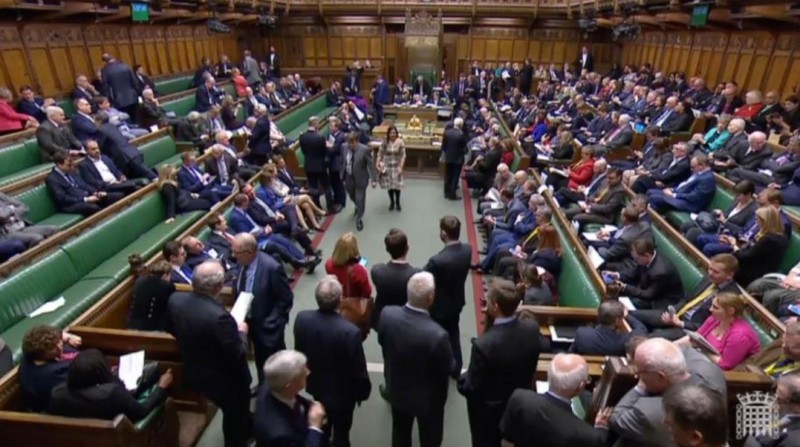
Introduction
The Brexit referendum held in 2016 marked a significant turning point in the history of the United Kingdom. The British electorate voted to leave the European Union, triggering a series of political, economic, and social changes. This article aims to delve into the background, impact, and aftermath of the Brexit referendum, shedding light on the motivations behind the decision and the consequences that unfolded.
Historical Context
Before delving into the referendum itself, it is crucial to understand the historical context that led to the Brexit vote. The United Kingdom had been a member of the European Union since 1973, but its relationship with the EU had often been a topic of debate within the country. Discussions about sovereignty, immigration, and trade regulations played a significant role in shaping public opinion on EU membership.
The Brexit Referendum
On June 23, 2016, the United Kingdom held a historic referendum to determine whether the country should remain a member of the European Union or leave it. The referendum question posed to voters was straightforward: "Should the United Kingdom remain a member of the European Union or leave the European Union?" The outcome of this vote would have far-reaching consequences for the nation and its relationship with the EU.
The Leave Campaign
The Leave campaign, also known as "Brexit," advocated for the United Kingdom to exit the European Union. Supporters of Leave argued for regaining control over national laws, borders, and trade agreements. They emphasized the concept of national sovereignty, asserting that the UK should be free from EU regulations and able to forge its own path on the global stage.
The Remain Campaign
The Remain campaign, on the other hand, argued for the United Kingdom to maintain its membership in the European Union. Supporters of Remain highlighted the economic benefits of EU membership, such as access to the single market, free trade agreements, and the ease of movement for goods, services, and people within the EU. They believed that the UK's influence and security were enhanced by being part of a larger collective.
The Outcome
In a closely contested referendum, the British electorate voted in favor of leaving the European Union. The "Leave" side secured 51.9% of the votes, while the "Remain" side garnered 48.1%. This narrow margin revealed a deeply divided nation, with stark regional variations in voting patterns. The outcome of the Brexit referendum sent shockwaves throughout the United Kingdom and the European Union.
Implications for the United Kingdom
The decision to leave the European Union had wide-ranging implications for the United Kingdom across various domains.
Economic Consequences
The UK's departure from the EU had immediate economic repercussions. Financial markets experienced volatility, and the British pound sterling declined significantly against major currencies. Businesses faced uncertainty surrounding future trade arrangements and investments, which impacted investment decisions and market confidence.
Political Changes
The Brexit vote led to significant political changes within the United Kingdom. Prime Minister David Cameron, who campaigned for Remain, resigned following the referendum result. Theresa May succeeded him as the Prime Minister, overseeing the subsequent negotiation process. The issue of Brexit also strained relationships within political parties and brought debates over Scottish independence to the forefront.
Social and Cultural Shifts
Brexit exposed deep divisions within British society. Debates over immigration, national identity, and multiculturalism were central to the referendum campaign. The vote highlighted differing perspectives on these issues and fueled public discourse on topics such as sovereignty, patriotism, and integration. It also led to an increase in reported incidents of xenophobia and hate crimes.
Negotiating the Withdrawal
Following the referendum, the United Kingdom entered into a period of negotiations with the European Union to determine the terms of its withdrawal. This complex process involved discussions on trade agreements, the status of EU citizens in the UK, and the financial settlement known as the "divorce bill." The negotiation period was challenging and marked by numerous debates and deadlocks.
Future Relationship with the European Union
As the UK officially left the European Union on January 31, 2020, a transitional period began to establish the future relationship between the two entities. Negotiations focused on securing a trade deal and establishing frameworks for cooperation in various areas, including security, fisheries, and data protection. The discussions were protracted, and both sides faced challenges in finding common ground.
Impact on EU Member States
Brexit had a significant impact not only on the United Kingdom but also on the remaining member states of the European Union. It prompted discussions on the future of the EU, with some countries contemplating their own potential exits. The departure of one of the EU's largest economies also affected the union's budget, trade dynamics, and political dynamics.
International Relations and Global Impact
The Brexit decision reverberated globally, affecting international relations and geopolitics. The United Kingdom had to redefine its relationships with countries outside the EU, establish new trade agreements, and navigate its role on the world stage. The impact of Brexit extended beyond Europe, shaping global economic and political dynamics.
Conclusion
The Brexit referendum in 2016 had far-reaching implications for the United Kingdom and the European Union. It was a decision that reshaped political landscapes, triggered economic uncertainties, and brought societal divisions to the forefront. The path forward for the UK and its relationship with the EU continues to evolve, with ongoing negotiations and challenges. The consequences of Brexit will shape the country's trajectory for years to come.
Manipur Violence: Tribal Leader Forum Regrets Kuki Zo Conflict